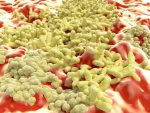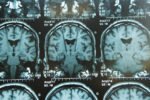PS128 probiotic found to ease leg muscle contractions in Rett patients
Scientists were investigating supplement's impact on gut imbalances, cognition
Written by |

The probiotic Lactobacillus plantarum PS128 was found to ease involuntary leg muscle contractions, known as dystonia, in Rett syndrome patients, according to a pilot study that tested the supplement’s impact on neurological outcomes.
Noting that Rett syndrome “often involves gastrointestinal symptoms and gut microbiota imbalances,” the researchers had sought to assess the use of PS128 probiotic supplements in a clinical trial involving 36 patients with the rare disease.
While no significant benefits were seen in cognition, social behavioral or daily functioning, or Rett severity over the trial’s nearly four-month course, the treatment was found to be well tolerated and “feasible” for use. Further, it showed “a tendency to enhance overall cognitive developmental level,” the researchers wrote.
“Future research with larger sample sizes and longer intervention periods is warranted to validate and extend these findings,” the researchers wrote.
Their study, “Investigating the impact of probiotic on neurological outcomes in Rett syndrome: A randomized, double-blind, and placebo-controlled pilot study,” was published in the journal Autism.
PS128 probiotic tested in trial comes from Taiwanese mustard
The human gut microbiome, or the community of microbes living in the gut, increasingly has been recognized as playing a crucial role in brain development and nerve cell function.
Dysfunction of the gut microbiota-brain axis — which involves immunological, hormonal, and neuronal signals — has been shown to worsen a number of health conditions, including neurological diseases. Additionally, previous research has indicated that the gut microbial community is less diverse in Rett patients and is associated with disease severity.
Probiotics are live microorganisms that are thought to be beneficial for a person’s health. Lactobacillus plantarum PS128 is a probiotic isolated from fu-tsai, a traditional Taiwanese fermented mustard. In a trial involving people with autism, PS128 significantly improved neurological behavior.
Now, scientists in Taiwan conducted a small clinical trial to test whether PS128 could improve the neurological function of people with Rett.
The Rett patients were randomly assigned to oral capsules of PS128 or a placebo. One participant on the placebo did not complete the study, making the tally of those who did 18 on the probiotic and 17 on the sham supplement. All but one patient were female, and the average age in the two groups was 16-18 years. The capsules were given twice a day for 16 weeks, or nearly four months.
The study assessed the tolerability of the PS128 probiotic by measuring the number of patients who discontinued treatment, along with other parameters.
In addition, the researchers measured changes in early learning. This was done with the Mullen Scales of Early Learning (MSEL), which assesses visual reception, used to gain meaning from visual symbols, as well as fine motor, gross motor, receptive language, and expressive language. Receptive language is a person’s ability to understand words and language, while expressive language is the way people express themselves.
Other analyses included measures of dystonia, assessed with the Burke-Fahn-Marsden movement scale (BFMMS) and the Unified Dystonia Rating Scale (UDRS). Higher scores indicate worse symptoms. Rett severity, social behavior, and daily adaptive functioning across communication, daily living skills, socialization, and motor skills also were assessed.
No treatment discontinuations were reported in the PS128 group. One patient reported loose stools after taking PS128.
Improvement seen in overall cognitive development but not in any domain
At the start of the study, the mean MSEL score was similar between the probiotic and placebo groups. At the end of the study, a gain of 2.19 points was seen among those on the PS128 probiotic, with a 0.85 decrease in the placebo group.
A statistical model estimated a significant improvement in overall cognitive development by three months in patients given PS128, after adjusting for MSEL scores and the participants’ ages at the study’s start.
However, when examining each MSEL domain, no significant improvements were seen. Visual function showed a trend toward improvement with PS128 by the second month.
This study provides a strong foundation for future research and clinical trials exploring the potential of L. plantarum PS128 probiotics as a complementary therapy for individuals with Rett syndrome.
Dystonia was significantly lessened with PS128, as indicated by a greater reduction in the total BFMMS scores at the end of the study compared with the placebo. This was especially seen in the legs. No significant differences were seen with the UDRS.
Regarding Rett severity and social behavior and daily adaptive functioning, no significant changes were found, according to the researchers.
An analysis of the gut microbiome revealed that treatment with PS128 did not significantly change microbial diversity.
Overall, “this study provides a strong foundation for future research and clinical trials exploring the potential of L. plantarum PS128 probiotics as a complementary therapy for individuals with Rett syndrome,” the researchers concluded.
A relevant limitation of the study, according to the scientists, was that its group of participants was relatively small, “which may have limited the statistical power to detect significant differences in some outcomes.”
“Future studies with larger sample sizes could provide more robust results,” the team wrote.




